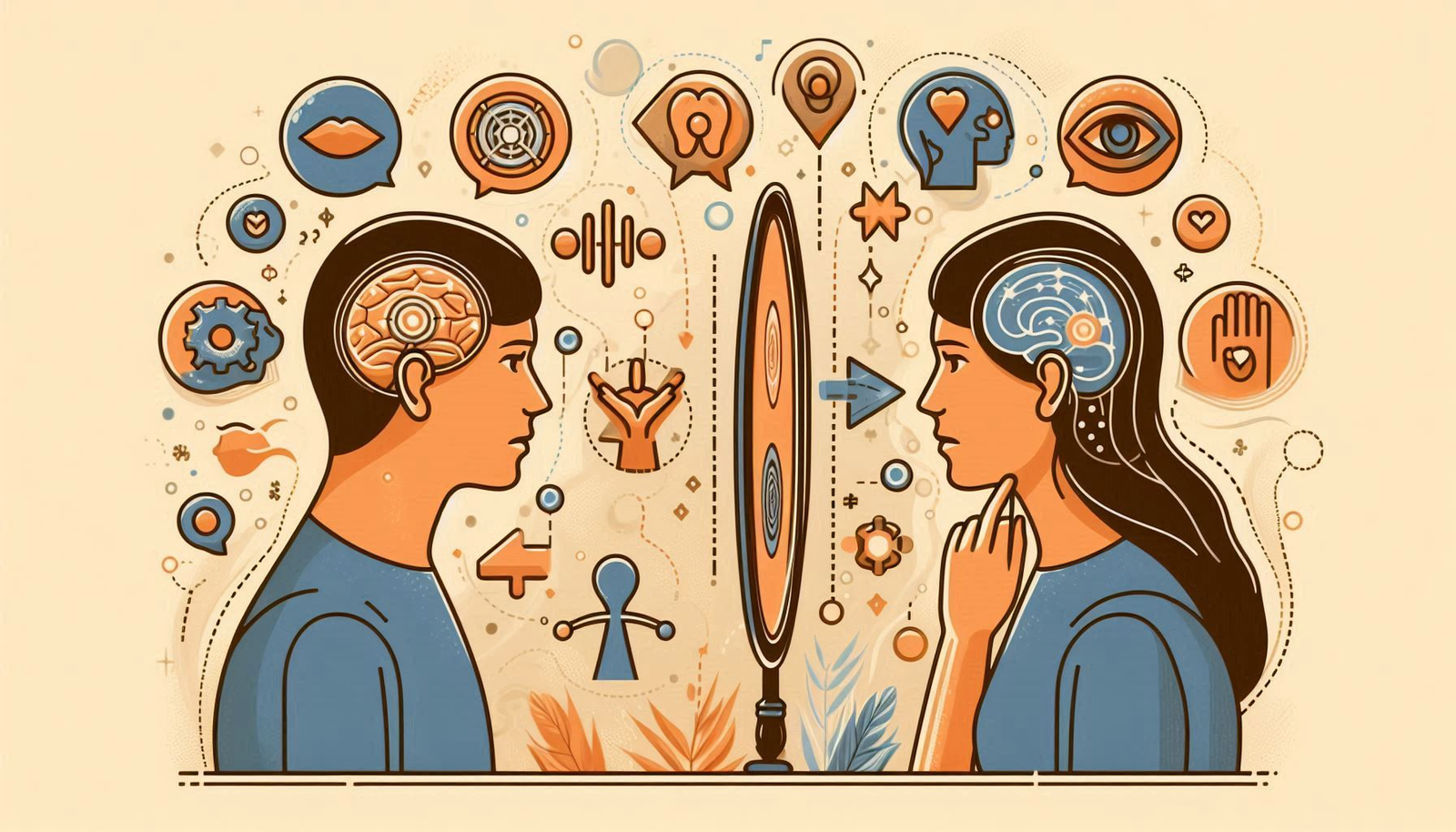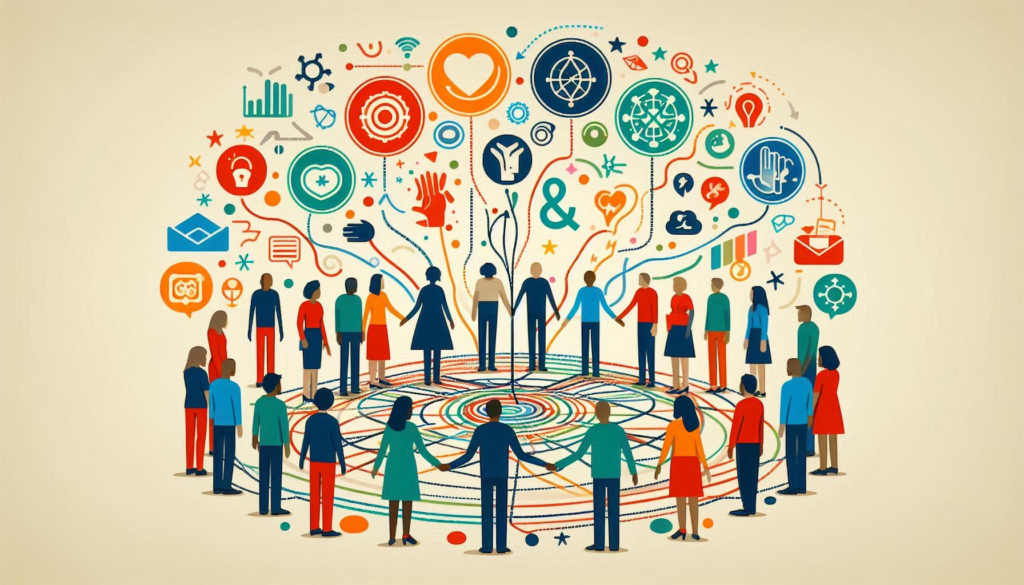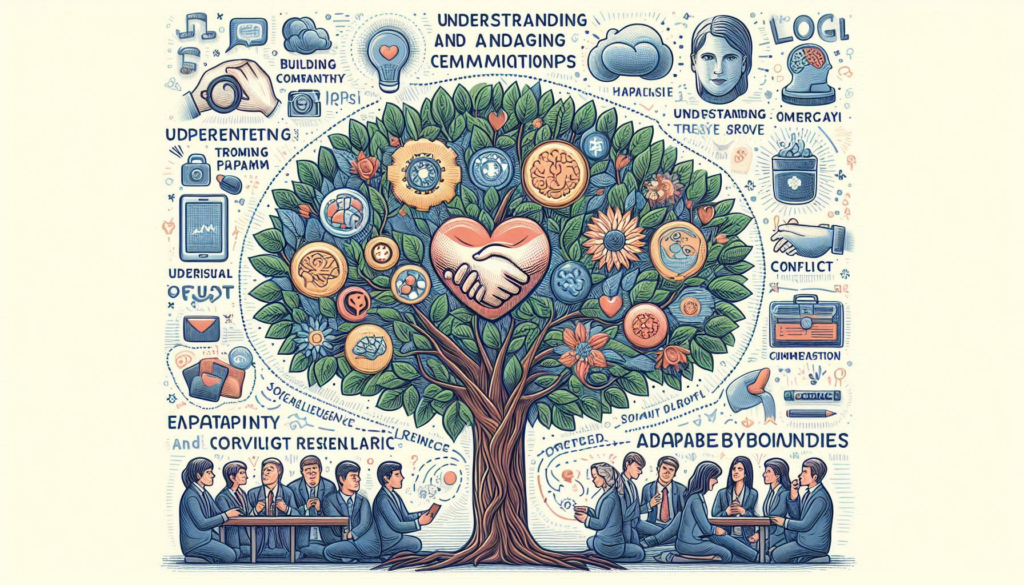
7 Social Intelligence Tips for Strong Relationships
7 Social Intelligence Tips for Strong Relationships
Discover effective social intelligence tips to enhance your connections and improve communication in personal and professional settings.

Introduction
Definition of Social Intelligence and Its Importance in Relationships
Social intelligence is the ability to understand and manage interpersonal relationships effectively. It involves being aware of your own and others’ emotions, navigating social situations with ease, and building meaningful connections. Social intelligence is crucial for fostering healthy relationships, as it enables individuals to communicate effectively, resolve conflicts, and empathize with others.
Overview of the Benefits of Social Intelligence for Personal and Professional Relationships
Developing social intelligence offers numerous benefits for both personal and professional relationships:
- Enhanced Communication: Socially intelligent individuals can express themselves clearly and listen actively, leading to better understanding and fewer misunderstandings.
- Stronger Connections: By empathizing with others and building trust, socially intelligent people form deeper and more meaningful relationships.
- Improved Conflict Resolution: Social intelligence equips individuals with the skills to navigate conflicts constructively, finding solutions that satisfy all parties involved.
- Increased Emotional Well-being: Positive social interactions contribute to emotional stability and overall happiness.
- Professional Success: In the workplace, social intelligence can lead to better teamwork, leadership, and networking opportunities.
Brief Introduction to the 7 Tips for Building Strong Relationships Through Social Intelligence
This guide will explore seven essential tips for building strong relationships through social intelligence:
- Understanding and Managing Emotions
- Effective Communication Skills
- Building Trust and Rapport
- Conflict Resolution and Problem-Solving
- Developing Empathy and Compassion
- Adaptability and Flexibility
- Building and Maintaining Healthy Boundaries
By implementing these tips, you can enhance your social intelligence and create stronger, more fulfilling relationships in both your personal and professional life.

Section 1: Understanding and Managing Emotions
Explanation of Emotional Intelligence and Its Role in Social Intelligence
Emotional intelligence (EI) is the ability to recognize, understand, and manage our own emotions, as well as the emotions of others. It plays a crucial role in social intelligence, which involves navigating social situations and building meaningful relationships. High emotional intelligence allows individuals to communicate effectively, empathize with others, and handle interpersonal conflicts with grace.
Techniques for Recognizing and Managing Your Own Emotions
- Self-Awareness: Regularly check in with yourself to identify your emotions and understand their triggers. Journaling can be a helpful tool for this.
- Mindfulness Practices: Engage in mindfulness activities such as meditation or deep breathing exercises to stay present and manage stress.
- Emotional Regulation: Develop strategies to manage intense emotions, such as taking a break, practicing relaxation techniques, or engaging in physical activity.
Strategies for Understanding and Empathizing with Others’ Emotions
- Active Listening: Pay close attention to what others are saying without interrupting. Show that you are listening through nodding, maintaining eye contact, and providing verbal affirmations.
- Perspective-Taking: Try to see situations from others’ viewpoints to better understand their feelings and reactions.
- Empathetic Responses: Respond to others with empathy by acknowledging their emotions and offering support or validation.
Real-Life Examples of How Emotional Intelligence Enhances Relationships
- Example 1: A manager who practices emotional intelligence by recognizing their team’s stress levels and providing support, leading to a more cohesive and productive work environment.
- Example 2: A friend who uses active listening and empathy to help another friend through a difficult time, strengthening their bond and trust.
Section 2: Effective Communication Skills
Importance of Clear and Effective Communication in Relationships
Clear and effective communication is the foundation of strong relationships. It helps prevent misunderstandings, resolves conflicts, and fosters a sense of connection and trust. Good communication skills enable individuals to express their thoughts and feelings clearly and understand others’ perspectives.
Tips for Active Listening and Providing Constructive Feedback
- Active Listening: Focus fully on the speaker, avoid interrupting, and show interest through body language and verbal cues. Reflect back what you hear to ensure understanding.
- Constructive Feedback: Provide feedback that is specific, focused on behavior rather than personality, and delivered in a respectful and supportive manner. Use “I” statements to express your perspective without blaming.
Techniques for Expressing Thoughts and Feelings Clearly and Respectfully
- Use “I” Statements: Frame your thoughts and feelings using “I” statements (e.g., “I feel… when… because…”) to take ownership of your emotions and avoid sounding accusatory.
- Be Clear and Concise: Communicate your message clearly and directly, avoiding vague language or unnecessary details.
- Respectful Tone: Maintain a respectful and calm tone, even when discussing difficult topics. Avoid raising your voice or using aggressive language.

Case Studies of Successful Communication in Personal and Professional Settings
- Case Study 1: A couple who improved their relationship by practicing active listening and using “I” statements during disagreements, leading to more effective communication and conflict resolution.
- Case Study 2: A team at work that enhanced their collaboration and productivity by holding regular meetings where members could openly share ideas and provide constructive feedback.
Section 3: Building Trust and Rapport
The Role of Trust in Strong Relationships
Trust is the foundation of any strong relationship. It creates a sense of safety and security, allowing individuals to be open and vulnerable with each other. Trust fosters mutual respect, understanding, and cooperation, which are essential for maintaining healthy and lasting connections.
Strategies for Building and Maintaining Trust with Others
- Consistency: Be reliable and consistent in your actions and words. Follow through on promises and commitments to build credibility.
- Honesty: Practice honesty and transparency in your interactions. Avoid deceit and be truthful, even when it’s difficult.
- Respect: Show respect for others’ boundaries, opinions, and feelings. Treat others with kindness and consideration.
- Accountability: Take responsibility for your actions and admit mistakes. Apologize when necessary and make amends.
Tips for Creating Rapport and Fostering a Sense of Connection
- Active Listening: Pay full attention to the speaker, show genuine interest, and respond thoughtfully. This helps build a connection and shows that you value their perspective.
- Common Interests: Find and discuss shared interests or experiences to create a sense of camaraderie.
- Positive Body Language: Use open and welcoming body language, such as maintaining eye contact, smiling, and nodding, to convey warmth and approachability.
- Empathy: Show empathy by acknowledging and validating others’ feelings and experiences.
Examples of How Trust and Rapport Contribute to Relationship Success
- Example 1: A team leader who builds trust with their team by being transparent about decisions and consistently supporting team members, resulting in a cohesive and high-performing team.
- Example 2: A couple who strengthens their relationship by actively listening to each other and finding common interests, leading to a deeper emotional connection and mutual understanding.
Section 4: Conflict Resolution and Problem-Solving
Understanding the Impact of Conflict on Relationships
Conflict is a natural part of any relationship, but how it is managed can significantly impact the relationship’s health. Unresolved conflicts can lead to resentment, misunderstandings, and a breakdown in communication. On the other hand, effectively resolving conflicts can strengthen relationships and build trust.
Techniques for Resolving Conflicts in a Healthy and Constructive Manner
- Stay Calm: Approach conflicts with a calm and composed demeanor. Take deep breaths and avoid reacting impulsively.
- Active Listening: Listen to the other person’s perspective without interrupting. Show that you understand their concerns and feelings.
- Focus on Solutions: Instead of dwelling on the problem, work together to find mutually acceptable solutions. Be willing to compromise and collaborate.
- Use “I” Statements: Express your feelings and concerns using “I” statements (e.g., “I feel… when… because…”) to avoid sounding accusatory and to take ownership of your emotions.
Problem-Solving Strategies to Address and Prevent Future Conflicts
- Identify the Root Cause: Understand the underlying issues that led to the conflict. Addressing the root cause can prevent similar conflicts in the future.
- Set Clear Expectations: Establish clear expectations and boundaries to avoid misunderstandings and miscommunications.
- Regular Check-Ins: Schedule regular check-ins to discuss any concerns or issues before they escalate into conflicts.
- Seek Mediation: If conflicts persist, consider seeking mediation from a neutral third party to facilitate resolution.

Real-Life Examples of Effective Conflict Resolution in Relationships
Example 2: A couple who successfully navigates a disagreement by using active listening and “I” statements, resulting in a deeper understanding of each other’s needs and a stronger relationship.
Example 1: A workplace team that resolves a conflict by holding a meeting where all members can voice their concerns and collaboratively develop a plan to address the issues, leading to improved teamwork and productivity.
Section 5: Developing Empathy and Compassion
The Importance of Empathy and Compassion in Social Intelligence
Empathy and compassion are fundamental components of social intelligence. Empathy involves understanding and sharing the feelings of others, while compassion is the desire to help alleviate their suffering. These qualities enable individuals to connect deeply with others, build trust, and foster supportive relationships. Empathy and compassion enhance communication, reduce conflicts, and promote emotional well-being.
Techniques for Developing and Practicing Empathy
- Active Listening: Pay full attention to the speaker, without interrupting, and show genuine interest in their perspective.
- Perspective-Taking: Try to see situations from others’ viewpoints to better understand their feelings and reactions.
- Reflective Responses: Acknowledge and validate others’ emotions by reflecting back what you hear (e.g., “It sounds like you’re feeling…”).
- Mindfulness Practices: Engage in mindfulness activities to become more aware of your own emotions and better attuned to others’ feelings.
Strategies for Showing Compassion and Support in Relationships
- Offer Help: Actively look for ways to assist others, whether through small acts of kindness or providing emotional support.
- Express Understanding: Let others know that you understand their struggles and are there for them.
- Be Present: Spend quality time with loved ones, showing that you value and care about them.
- Encourage and Affirm: Offer words of encouragement and affirmation to boost others’ confidence and well-being.
Stories of How Empathy and Compassion Have Strengthened Relationships
- Story 1: A friend who supported another through a difficult time by actively listening and offering emotional support, leading to a stronger bond and deeper trust.
- Story 2: A colleague who showed compassion by helping a stressed team member with their workload, resulting in improved teamwork and a more positive work environment.
Section 6: Adaptability and Flexibility
The Role of Adaptability in Maintaining Strong Relationships
Adaptability is the ability to adjust to new situations and changes, which is crucial for maintaining strong relationships. Being adaptable allows individuals to navigate different social contexts, handle unexpected challenges, and respond to others’ needs effectively. Flexibility in behavior and thinking helps build resilience and fosters harmonious interactions.
Tips for Being Flexible and Open-Minded in Various Social Situations
- Stay Open to New Ideas: Be willing to consider different perspectives and approaches.
- Embrace Change: View change as an opportunity for growth rather than a threat.
- Practice Patience: Give yourself and others time to adjust to new situations.
- Be Curious: Ask questions and show interest in learning about others’ experiences and viewpoints.
Strategies for Adjusting Your Behavior to Different Personalities and Contexts
- Observe and Adapt: Pay attention to social cues and adjust your behavior accordingly.
- Tailor Communication: Modify your communication style to suit the preferences of different individuals.
- Show Respect: Respect others’ boundaries, preferences, and cultural differences.
- Be Flexible: Be willing to compromise and find common ground in interactions.
Examples of How Adaptability Has Improved Relationship Dynamics
- Example 1: A manager who adapted their leadership style to better suit the needs of their diverse team, resulting in increased productivity and job satisfaction.
- Example 2: A couple who improved their relationship by being open to each other’s perspectives and making adjustments to their routines and habits.
Section 7: Building and Maintaining Healthy Boundaries
The Importance of Setting and Respecting Boundaries in Relationships
Healthy boundaries are essential for maintaining respectful and fulfilling relationships. Boundaries define what is acceptable and unacceptable behavior, helping individuals protect their well-being and maintain a sense of autonomy. Setting and respecting boundaries fosters mutual respect, reduces conflicts, and enhances relationship quality.
Techniques for Establishing Clear and Healthy Boundaries
- Self-Reflection: Identify your needs, limits, and values to understand what boundaries are important to you.
- Communicate Clearly: Express your boundaries assertively and respectfully, using “I” statements (e.g., “I need some time alone to recharge”).
- Be Consistent: Enforce your boundaries consistently to ensure they are respected.
- Seek Support: Reach out to trusted friends, family members, or a therapist for guidance in setting and maintaining boundaries.
Strategies for Communicating and Enforcing Boundaries Effectively
- Be Direct: Clearly state your boundaries and the reasons behind them.
- Use Positive Language: Frame your boundaries in a positive way, focusing on what you need rather than what others should not do.
- Stay Calm: Communicate your boundaries calmly and confidently, without anger or frustration.
- Follow Through: Take action if your boundaries are violated, such as removing yourself from the situation or reiterating your needs.
Case Studies of How Healthy Boundaries Have Enhanced Relationship Quality
- Case Study 1: An individual who improved their relationship with a friend by setting boundaries around personal time, leading to a more balanced and respectful friendship.
- Case Study 2: A couple who strengthened their relationship by establishing clear boundaries around work and personal time, resulting in better work-life balance and increased intimacy.
Conclusion
Recap of the 7 Social Intelligence Tips for Building Strong Relationships
- Understanding and Managing Emotions: Recognize and regulate your own emotions while empathizing with others.
- Effective Communication Skills: Practice active listening, provide constructive feedback, and express thoughts clearly and respectfully.
- Building Trust and Rapport: Be consistent, honest, and respectful to build and maintain trust and rapport.
- Conflict Resolution and Problem-Solving: Approach conflicts calmly, focus on solutions, and use problem-solving strategies to prevent future conflicts.
- Developing Empathy and Compassion: Show empathy and compassion by understanding others’ feelings and offering support.
- Adaptability and Flexibility: Be open-minded and adaptable to different social situations and personalities.
- Building and Maintaining Healthy Boundaries: Establish and communicate clear boundaries to protect your well-being and enhance relationship quality.
Encouragement to Implement These Tips for Improved Personal and Professional Relationships
Building social intelligence is a continuous journey that requires dedication and practice. By implementing these seven tips, you can enhance your ability to connect with others, navigate social situations with ease, and build stronger, more fulfilling relationships. Whether in your personal life or professional environment, these skills will help you foster trust, resolve conflicts, and create meaningful connections.
Final Thoughts on the Journey of Developing Social Intelligence and Its Impact on Relationships
Developing social intelligence is not just about improving your interactions with others; it’s about understanding yourself better and growing as an individual. As you cultivate these skills, you’ll find that your relationships become more rewarding and your ability to handle social challenges increases. Embrace this journey with an open heart and mind, and you’ll discover the profound impact that social intelligence can have on your life and the lives of those around you.
FAQs
- What is inner strength? Inner strength refers to the mental, emotional, and physical resilience that helps individuals navigate life’s challenges.
- How can I develop a positive mindset? Techniques such as gratitude journaling, affirmations, and focusing on positive experiences can help cultivate a positive mindset.
- What are the benefits of mindfulness and meditation? Mindfulness and meditation can enhance mental clarity, reduce stress, and promote emotional balance.
- Why is physical exercise important for inner strength? Physical exercise improves overall health, boosts mood, and increases resilience to stress.
- How can I build emotional resilience? Developing coping mechanisms, practicing self-compassion, and engaging in self-care are key strategies for building emotional resilience.
- What role do relationships play in inner strength? Healthy relationships provide support, encouragement, and a sense of belonging, all of which contribute to inner strength.
- How can I pursue personal growth? Continuous learning, setting goals, and seeking new experiences are ways to pursue personal growth and enhance inner strength.
- What are effective stress management techniques? Techniques such as time management, relaxation exercises, and maintaining a balanced lifestyle can help manage stress effectively.
- Can inner strength be developed at any age? Yes, inner strength can be developed at any age through consistent practice and dedication to personal growth.
- How long does it take to build inner strength? The time it takes to build inner strength varies for each individual, but consistent effort and practice can lead to significant improvements over time.
By implementing these seven tips, you can enhance your ability to connect with others, navigate social situations with ease, and build stronger, more fulfilling relationships. Whether in your personal life or professional environment, these skills will help you foster trust, resolve conflicts, and create meaningful connections. Developing social intelligence is not just about improving your interactions with others; it’s about understanding yourself better and growing as an individual. Embrace this journey with an open heart and mind, and you’ll discover the profound impact that social intelligence can have on your life and the lives of those around you.



